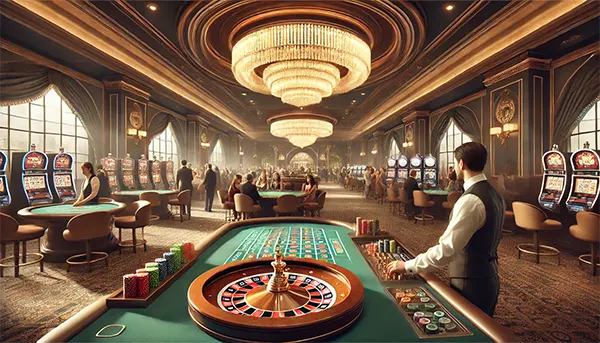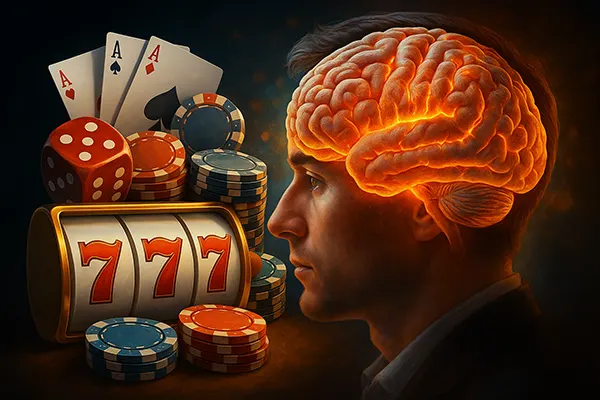
Psychology of Gambling: How Casinos Use Behavioural Triggers to Attract Players
Gambling establishments leverage various psychological techniques to keep players engaged and encourage continuous play. From subtle environmental cues to reward-based reinforcement, casinos create an immersive atmosphere designed to maximise player retention.
Behavioural Triggers in Casino Environments
Casinos employ numerous tactics to influence player decisions and sustain their engagement. These strategies are rooted in behavioural psychology and aim to manipulate emotions and perceptions.
One of the most effective tools is ambient design. The use of warm lighting, strategic colour schemes, and relaxing background music creates a sense of comfort and excitement, reducing a player’s ability to keep track of time.
Additionally, casinos remove clocks and windows to disconnect players from reality. Without clear indicators of time, visitors often play for longer than initially planned, increasing the casino’s profits.
The Role of Sound and Visual Stimuli
Slot machines and electronic gaming devices are equipped with bright, flashing lights and celebratory sounds to reinforce positive experiences. Winning sounds are often exaggerated, making even small victories feel more significant.
This creates a sense of reward, even when actual payouts are minimal, encouraging continued play. The human brain associates these sensory triggers with pleasure, making players more likely to keep gambling.
Furthermore, near-miss effects are frequently used in slot games. When players see two matching symbols but miss the third by a narrow margin, they are more likely to believe they were “close to winning,” which fuels their motivation to try again.
The Psychology of Rewards and Reinforcement
Casinos rely heavily on reinforcement schedules to maintain player engagement. Unlike predictable rewards, which can quickly lose their appeal, gambling operates on a variable-ratio reinforcement schedule.
This means that rewards (wins) are given unpredictably, making the experience highly addictive. Since players never know when the next win will come, they remain engaged for extended periods.
Additionally, loyalty programmes further exploit this principle by offering incremental rewards. Points-based systems and tiered memberships give players the illusion of progress, encouraging them to invest more money.
The Gambler’s Fallacy and Cognitive Biases
Many gamblers believe in the “gambler’s fallacy”—the misconception that past outcomes influence future results. For example, after a losing streak, players may assume that a win is “due,” leading them to continue playing.
Casinos take advantage of this cognitive bias by promoting myths such as “hot” and “cold” machines or streaks in table games, further encouraging irrational betting behaviours.
Similarly, the illusion of control makes players feel they can influence random outcomes through personal strategies, such as throwing dice in a specific way or pressing slot machine buttons at a certain pace.

Social Influence and Casino Marketing
Beyond in-game strategies, casinos use social influence to attract and retain players. The presence of winners, leaderboard displays, and community jackpots create a perception that winning is common and achievable.
Casinos also employ targeted marketing campaigns that highlight success stories, reinforcing the idea that big wins are within reach. This form of persuasion plays on the psychological principle of social proof.
Additionally, VIP programmes and exclusive events create a sense of prestige and belonging. Players aspire to reach higher loyalty tiers, increasing their overall gambling expenditures.
Responsible Gambling and Awareness
Understanding these psychological triggers allows players to make more informed decisions about their gambling habits. Awareness of how casinos design environments and rewards to sustain engagement is crucial in practising responsible gambling.
Many jurisdictions now require casinos to include responsible gambling measures, such as voluntary self-exclusion programmes and spending limits. These tools can help individuals maintain control over their gambling behaviours.
Ultimately, being aware of the psychological influences at play can empower gamblers to engage in gaming responsibly and avoid falling into harmful patterns of behaviour.



